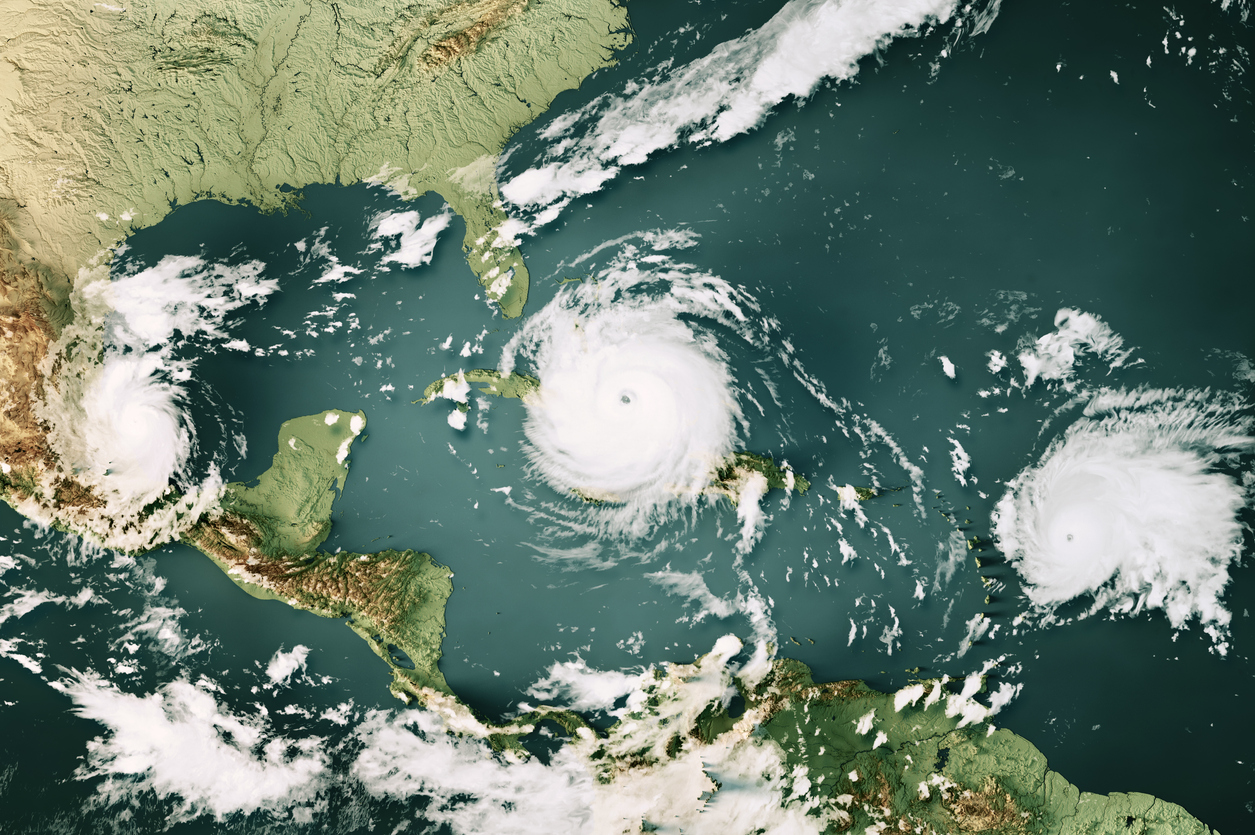Ten years ago, Merlin Law Group attorney Ashley Harris wrote a blog post: “Was Superstorm Sandy a ‘Named Storm?’” The issue was whether a high deductible could be applied to a Superstorm Sandy loss because the policy allowed a higher deductible if Superstorm Sandy was a “named storm.” The policyholder prevailed.
In a recent federal case, the policyholder purchased a policy covering windstorm damages caused by a “named storm,” claiming that a tornado was a “named storm” because local media gave the tornado a name. The insurer’s primary argument hinged on the specific language and endorsements of the insurance policy. They maintained that the policy unambiguously limited coverage to damage caused by “Named Storms” and asserted that the tornado in question did not qualify as such under the policy’s terms.
The insurers’ brief, written by Paige Jones of Phelps Dunbar, did an excellent job explaining the history of the policy purchase and setting forth the policy language. Eduro Healthcare, LLC sought commercial property insurance for its Deer Park, Texas, skilled nursing facility through its surplus lines insurance broker, Alex Haskell, with CRC Insurance Services, Inc. (“CRC”). The broker generated 17 different commercial property insurance quotes using AmRisc, LLC’s online platform, which included a mix of “all perils” and “named wind” coverage options.
Nine of the quotes provided “all perils” coverage, and the remaining eight were for “named wind” coverage only. Each quote presented different deductible options for Eduro to consider. Eduro, through CRC, chose to bind one of the “named wind” coverage quotes. The selection was made with the understanding that the policy would cover “Named Windstorm or Hail Only.” Confirmation of this order was sent to Mr. Haskell, followed by the issuance of the binder. This binder explicitly stated that the coverage was for “Peril Requested: Named Wind/Hail only.” A “Named Storm” was defined as including storms, cyclones, typhoons, atmospheric disturbances, depressions, or other weather phenomena designated by the US National Hurricane Center (NHC) and given a name by the NHC.
The insurers argued that the underwriting and selection process undertaken by Eduro, facilitated by CRC Insurance Services, was meticulous and clear in choosing a policy that provided coverage specifically for windstorm or hail damage caused by “Named Storms.” The decision was deliberate, with ample opportunity for Eduro to select broader coverage but ultimately opting for the more limited Named Storm policy. The insurers pointed to the lower premium policy selected by the policyholder over more expensive alternative forms, which would have covered the tornado loss.
The federal judge ruled that the policy’s language was clear and unambiguous, limiting coverage to windstorm or hail caused by Named Storms. 1 The SPE Endorsement and Endorsement collectively made this limitation explicit. The court noted that while the policy’s structure might require careful reading, it did not render the coverage ambiguous. The specific language in the endorsements clearly delineated the scope of coverage.
The court affirmed that the definition of a Named Storm applied to the entire policy. The Property Endorsement explicitly stated that its clauses, including the Named Storm definition, applied to the coverage provided by all underwriters, carriers, and insurers of the policy. The policyholder’s argument that the coverage was illusory because the NHC only names cyclones and not other storm types listed in the policy was rejected. The court emphasized that as long as the policy provided coverage for any named weather event, it was not illusory.
The policyholder’s assertion that local media and the Small Business Administration’s designation of the tornado as “Pasadena Tornado” and “Texas Disaster Number TX-00647” qualified it as a Named Storm was dismissed. The court reiterated that the policy specifically required NHC designation and naming, not local media references. The court ruled that the tornado was not a “Named Storm” as defined by the policy. Therefore, the policy did not cover the damage.
Takeaway and Warning for Commercial Policyholders
Commercial policyholders must meticulously review and understand the terms of their insurance policies, especially regarding coverage limitations and definitions of covered events. The following steps can help ensure that they do not encounter similar coverage disputes:
Policy Review and Clarity:
Thoroughly review all sections of the policy, including the main coverage form and any endorsements. Ensure there is a clear understanding of what constitutes a covered event. Seek clarification on any ambiguous terms or provisions from the insurer and those involved with selling the insurance product in writing.
Named Storms and Covered Events:
Pay particular attention to the definitions of covered events like Named Storms. Verify whether the policy includes specific weather phenomena and the criteria for coverage. Consider additional endorsements or policies that cover a broader range of weather-related events if the primary policy has narrow definitions. These “named storm” definitions can significantly change the perils insured, and they often impact the deductibles. In this case, the definition of “named storm” significantly reduced the chances of covered windstorm or hail damage from ever occurring. Indeed, hail can theoretically happen in an isolated thunderstorm during a hurricane event. However, the literature says hail actually hitting the surface during a hurricane is extremely rare. The policyholder’s argument that the policy was illusory is not that far-fetched.
Documentation and Communication:
Maintain detailed records of all communications with the insurance company underwriters and all involved brokers, especially regarding claims, coverage interpretations, and the type of coverages sought. These should be in writing.
Don’t Purchase on Price Alone:
How inexpensive is cheaper insurance that does not provide coverage after a loss happens? Retain great insurance agents or brokers who will guide decisions on purchases based upon insurance that provides quality coverage rather than the cheapest price.
Thought For The Day
It’s easier to explain price once than to apologize for quality forever.
—Zig Ziglar
1 QBE Specialty Ins. Co. v. Eduro Healthcare, No. H-23-2626, 2024 WL 3378451 (S.D. Tex. July 11, 2024).




